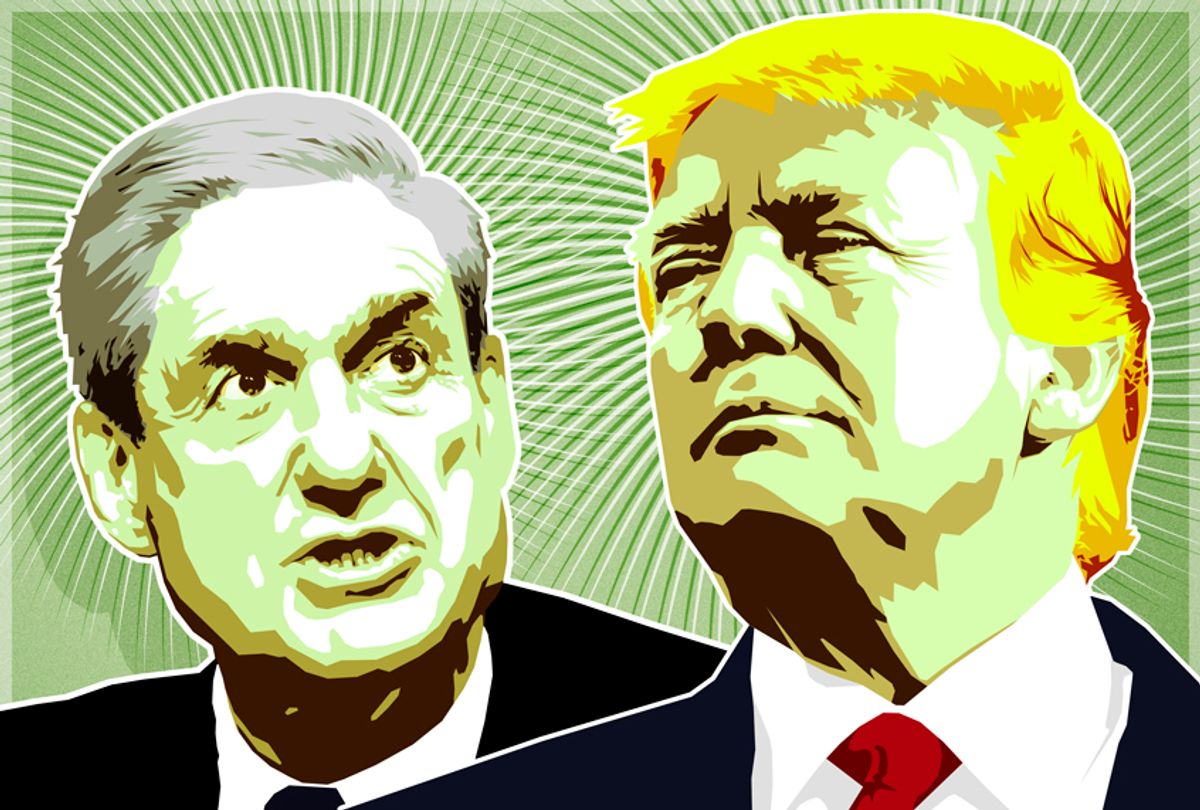For much of 2017 and 2018, one question nagged at critics of President Donald Trump and those who believe he may likely be guilty of criminal wrongdoing: Is he going to try to fire Special Counsel Robert Mueller?
While reports suggest Trump did want to have Mueller ousted, the special counsel remains in his job. As the investigation has progressed, concern that Trump might fire Mueller has waned because at this point, it doesn’t look like it would do much good.
A large part of that is because, whether or not Mueller’s investigation continues for much longer, the many probes of the president and the shady people and entities he has surrounding himself are almost certain to endure. As former U.S. Attorney Joyce White Vance and former DOJ spokesperson Matthew Miller explained in a new op-ed for the Washington Post, Mueller’s investigation has spiraled off in so many directions that it cannot be contained.
“What began as an FBI counterintelligence investigation into Russian interference in the 2016 presidential election has sprouted into multiple investigations in multiple jurisdictions examining multiple possible crimes,” they wrote.
Critics of Mueller may say that this is because he’s an out-of-control prosecutor hunting for blood. But in reality, this is the way the Justice Department is supposed to function. Whether he’s spreading out the lines of inquiry to protect them in case his investigation is prematurely throttled, or he’s doing it because it’s the proper procedure, Mueller has been handing off significant threads of the probe that he uncovers to other offices within the department. This means that even if Mueller were fired, the investigations would continue. The strategy also loops in other officials and decision-makers, who could rein in the investigations if Mueller had gone out of control.
“To open a new investigation, prosecutors need a credible predicate to believe that a crime has been committed. They must develop probable cause to believe they will uncover evidence or the fruit of a crime to persuade a federal judge to issue a search warrant,” explained Miller and Vance. “None of this suggests the witch hunt Trump often claims it is.”
They continued:
Federal investigations are serious business, with high stakes for those involved. Public corruption cases undergo internal scrutiny at the Justice Department to avoid the possibility of political maneuvering. An individual who becomes a target in one wants to limit the possible crimes he faces to as narrow a range as possible. That is doubly true for a political officeholder, who must manage the political fallout of investigations as well as the prospect of being charged in court. Trump, however, is now fighting a legal battle on multiple fronts, both substantively and geographically. He is in jeopardy. Criminal charges once he leaves office or referrals to the House of Representatives for an impeachment inquiry before then are real possibilities.
They also detailed the extent of the sprawling investigations touching on Trump:
Each new rock the Justice Department turns over holds the potential to launch entirely new lines of inquiry. In addition to the three investigations into the president and the organizations he has headed, Mueller has already referred multiple cases that we know of to prosecutors in Manhattan and Washington. The U.S. attorney in D.C. has secured guilty pleas from a former Senate staffer (for lying to investigators) and a Republican lobbyist (who arranged for foreigners to contribute to the president’s inauguration using straw donors), while SDNY continues to investigate whether prominent lawyers and lobbyists working with Manafort on behalf of Ukraine violated laws on foreign registration. Furthermore, the New York state attorney general is investigating the Trump Foundation, extending the president’s exposure beyond the Justice Department.
There’s one major outstanding question that we don’t know the answer to: What will William Barr do? Barr, who is almost certain to be approved by the Senate to be the next attorney general, will take over for the dubiously appointed Acting Attorney General Matthew Whitaker. Whitaker was picked for the position out of the traditional line of succession, it seems, at least in part because he was publicly critical of the Mueller probe. Many believe he took the job to exert control over the department on behalf of Trump.
But Barr, though he is also a Trump nominee, will likely be more independent than Whitaker. He, too, has been critical of the Mueller investigation, though he has backed off from his critique. He has been attorney general before, so he has less reason to be subservient to Trump’s demands. And with Democrats in charge of the House of Representatives, he’ll have enthusiastic lawmakers looking over his shoulder at every moment for any sign of wrongdoing.




Shares